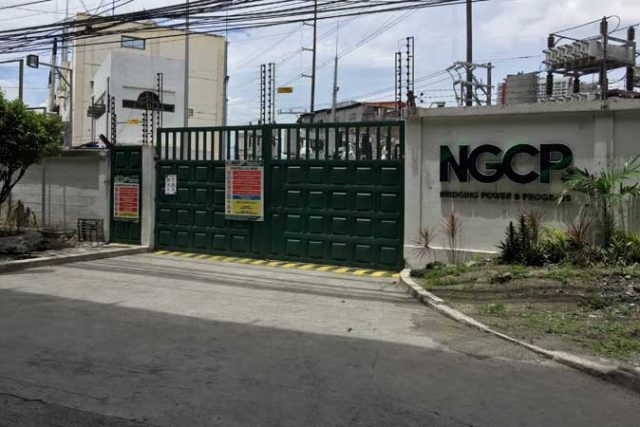DoE orders speedy NGCP deals for power buffer

THE Department of Energy (DoE) has ordered National Grid Corp. of the Philippines (NGCP) to speed up the acquisition of the required ancillary services (AS) to ensure the electric grid’s reliability.
Signed by Energy Secretary Alfonso G. Cusi, the “advisory” was issued on June 21, or less than a week after the grid system operator announced that it would hold a competitive public bidding for the supply of AS or power reserves to secure the “best value” for consumers.
Separately on Tuesday, the Energy Regulatory Commission (ERC) said that it had begun the virtual inspections of NGCP’s transmission facilities, the results of which will form part of the commission’s compliance review.
Citing Republic Act No. 9511 or the law granting NGCP’s franchise, the Energy department directed the privately led firm to “expedite the procurement of the required reserves to ensure the grid’s secured and reliable operations.”
In the advisory, NGCP is required to make available 4% of the total hourly demand of the regulating reserves or the needed capacity to balance the fluctuations between power supply and load.
It must also have contingency reserve levels — or the energy capacity necessary to automatically adjust to a sudden reduction of generation output or tripping of generating unit — equivalent to the “maximum capacity among the largest synchronized generating unit, a transmission element or power import from a circuit interconnection.”
NGCP was also told to have dispatchable reserves, which will replenish contingency reserves, with the maximum capacity “among the second largest synchronized generating unit, a transmission element or power import from a circuit interconnection.”
The DoE earlier flagged NGCP for not having enough firm-contracted reserves as of end-2020.
In its latest advisory, the DoE also ordered NGCP to ensure ample reactive power support AS (RPSAS), which must be determined a day ahead, and black start AS (BSAS), which involves the contracting of at least two generation units per power restoration highway and one available unit at any given time.
Reactive power ensures quality and stability of the grid while black start service makes sure that the grid can be revived immediately after a collapse.
The department also gave details on procuring reserves through firm-contracted arrangements, reiterating that the system operator is required to enter into these agreements as mentioned by a circular issued in 2019.
“The NGCP and generation companies (or) ancillary service providers (ASP) may negotiate the conversion of non-firm ASPA’s (ancillary service procurement agreements) to firm ASPA’s, pursuant to the system operator’s responsibility,” the advisory read.
After reaching an agreement, the ASP and NGCP must seek the approval of the ERC, the DoE said, adding that “all converted ASPA’s shall follow all provisions of existing ERC-approved ASPA’s.”
Meanwhile, RPSAS and BSAS procurement should be made only through firm contracts.
The department gave NGCP 30 days to convert all of its non-firm ASPA’s to firm ASPA’s, upon receipt of the advisory.
The DoE said that the ERC is in charge of issuing directives to NGCP on its full compliance in the procurement of sufficient AS levels, fast-tracking decisions and approvals related to reserve levels; imposing penalties for non-compliance; and enforcing the relevant policies and regulations.
The advisory was shared on the department’s website on Tuesday.
NGCP President Chief Executive Officer Anthony L. Almeda previously said that procuring reserves on either firm or non-firm arrangements will not solve the recurring brownouts or power interruptions.
“What we have is a supply and not a distribution problem. For the grid to effectively address imbalances between supply and demand, we need to increase the power capacity of the country to meet rising demand as we start to recover and fully reopen the economy,” he said.
VIRTUAL INSPECTIONS
In a statement on Tuesday, ERC Chairperson and Chief Executive Officer Agnes VST Devanadera said that the ongoing inspections will cover the grid operator’s facilities across the three major islands.
Sought for comment, ERC Commissioner-in-Charge Floresinda G. Baldo-Digal told BusinessWorld that eight transmission facilities were inspected on June 10.
Some activities conducted during the virtual inspections include document verification, oculars, and discussions with NGCP workers.
ERC explained that the virtual inspections will form part of NGCP’s compliance review where the system operator is evaluated in terms of its compliance with the rules, sufficiency of its infrastructure, and the accuracy and reliability of its information, among others. — Angelica Y. Yang
